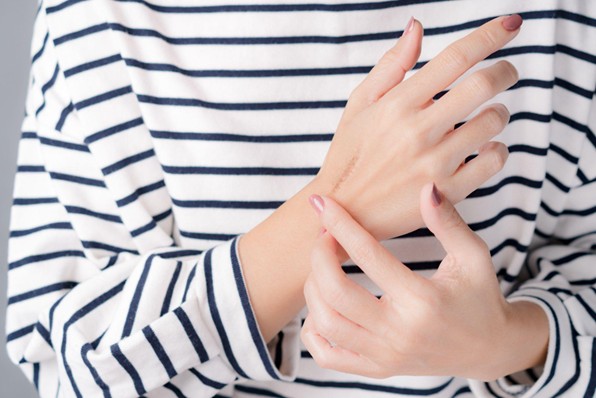-
mederma@winmedicare.com
- No.1 Dermatologist Recommended Scar Brand
-
Login

Scars often tell stories of life’s little adventures—childhood tumbles, surgeries, or unexpected mishaps. While they can feel like unwelcome reminders, they’re also a sign of healing. Among the many remedies that promise smoother skin, Vitamin E stands out as a popular option. However, does it live up to the hype? Is Vitamin E truly effective for scar healing, or is it just another beauty myth?
In this blog, we’ll learn the science behind Vitamin E, compare its effectiveness to other treatments, and share tips for caring for scars. By the end, you’ll know if this tried-and-tested remedy is worth adding to your skincare routine for a brighter, smoother future.
Vitamin E for scars is a fat-soluble antioxidant that plays a vital role in skin health. Known for its ability to protect and nourish the skin, many believe it holds the secret to fading scars. The primary idea is that applying vitamin E directly to scars can reduce their appearance by promoting skin regeneration and improving elasticity. Some parents also turn to vitamin E for children’s scars due to its gentle, nourishing properties.
While vitamin E for scars is a popular remedy, the scientific evidence around its effectiveness in scar healing is mixed. Some studies suggest that vitamin E benefits for skin scars include reducing redness, improving texture, and softening the appearance of scars over time. It’s thought to work by neutralising free radicals, which can damage skin cells, and by supporting the skin’s natural repair processes.
However, not all studies have shown promising results. In fact, some research indicates that applying vitamin E to scars may lead to allergic reactions or irritation in certain individuals, potentially worsening the scar’s appearance. It’s essential to approach this remedy with realistic expectations and consider it as one part of a broader scar-care routine.
When it comes to scar treatments, vitamin E isn’t the only player on the field. Here’s how it stacks up against other popular options:
While vitamin E has its benefits, it’s always advisable to consult a dermatologist for tailored advice.
Also Read – Effective Scars Treatment on Face
If you’re looking for a reliable solution, Mederma PM Intensive Overnight Scar Cream stands out as a top choice. This advanced product is designed to work while you sleep, helping to fade scars and rejuvenate your skin.
Why Choose Mederma?
For optimal results, apply Mederma PM Intensive Overnight Scar Cream generously to the scarred area before bed and gently massage until absorbed. Consistency is essential—most users notice improvement within 2-4 weeks, with optimal results typically seen in 8 weeks. It’s suitable for various types of scars, including those from surgeries, injuries, and acne.
Scar healing is a gradual process that requires patience and a comprehensive approach. Here are some tips to maximise your results:
Also Read – Different Types of Acne Scars
Achieving Smoother, Healthier Skin: What Works for You?
The question remains: is vitamin E good for scar healing? While vitamin E for scars has potential benefits, its effectiveness varies from person to person. For some, it may soften and lighten scars, while for others, it may have minimal impact. Combining vitamin E for scars with other proven treatments, like Mederma PM Intensive Overnight Scar Cream, offers a more comprehensive approach to scar care.
Ultimately, the key to successful scar healing lies in a well-rounded routine, consistent care, and professional guidance when needed. Whether it’s tackling childhood scars, addressing recent injuries, or improving skin texture, exploring the right treatments can help you achieve smoother, healthier skin. Take the time to understand what works best for your skin, and you’ll be well on your way to feeling confident and radiant once again.